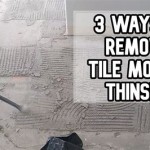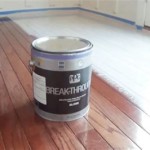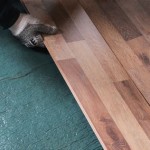Essential Aspects of Choosing the Best Vinyl Plank Flooring for Concrete Basements
If you're looking to upgrade your concrete basement flooring, vinyl plank flooring is an excellent choice. It's durable, waterproof, and easy to maintain, making it ideal for basements that are prone to moisture and wear. However, not all vinyl plank flooring is created equal, and it's important to consider certain key aspects when selecting the best option for your basement.
Moisture Resistance
Since basements are prone to moisture, choosing vinyl plank flooring with excellent moisture resistance is crucial. Look for flooring labeled as "waterproof" or "water-resistant." Waterproof flooring can withstand direct water exposure and is suitable for areas like bathrooms and kitchens. Water-resistant flooring, on the other hand, can handle spills and moisture for a limited time but not prolonged water contact.
Durability
Durability is another critical factor to consider, especially in a basement environment. Vinyl plank flooring should have a high wear layer to resist scratches, dents, and fading. The wear layer thickness is measured in mils (thousandths of an inch), and a wear layer of 12 mils or higher is recommended for basements.
Underlayment
Underlayment is a layer installed beneath the vinyl plank flooring to provide additional cushioning, sound dampening, and moisture protection. Choose an underlayment specifically designed for concrete subfloors. It should be moisture-resistant and provide a smooth, flat surface for the flooring.
Installation
Vinyl plank flooring can be installed using two methods: glue-down or floating. Glue-down involves adhering the planks directly to the concrete subfloor using adhesive. Floating installation uses a click-lock system to connect the planks without glue. Floating installations are easier to install and allow for expansion and contraction, making them more suitable for basements.
Style and Color
Vinyl plank flooring comes in a wide range of styles and colors, allowing you to create the desired look for your basement. Choose planks that complement the existing décor and consider the lighting conditions in the space. Darker colors can make a small basement feel smaller, while lighter colors can brighten up the space.
Maintenance
Vinyl plank flooring is generally easy to maintain. Regular sweeping, vacuuming, or mopping with a pH-neutral cleaner is sufficient to keep it clean. Avoid using harsh chemicals or abrasive cleaners that could damage the flooring.
Professional Installation
While vinyl plank flooring is relatively easy to install, it's recommended to hire a professional installer for a seamless and durable installation, especially in a moisture-prone basement environment. A professional can ensure proper preparation of the subfloor, underlayment installation, and precise placement of the planks.
Conclusion
Choosing the best vinyl plank flooring for a concrete basement requires careful consideration of factors such as moisture resistance, durability, underlayment, installation method, style, color, and maintenance. By investing in high-quality flooring and professional installation, you can create a beautiful, functional, and long-lasting basement that will enhance the overall value of your home.

What Is The Best Flooring For Basements Get Pros And Cons

Where To Get Flooring For Basements Reallyfloors America S Est Hardwood

The Best Flooring Options For Your Basement

The Best Flooring For Basement Renovations Guide Reallyfloors America S Est Hardwood

Vinyl Plank Flooring Installation Basement Remodel Before And After

What Are The Best Flooring For Basement In Homes

Basement Flooring Guide

Selecting The Best Basement Flooring Next Day Floors

The Best Basement Flooring Options Inc

6 Inspiring Ideas For Basement Flooring In Portland
See Also







